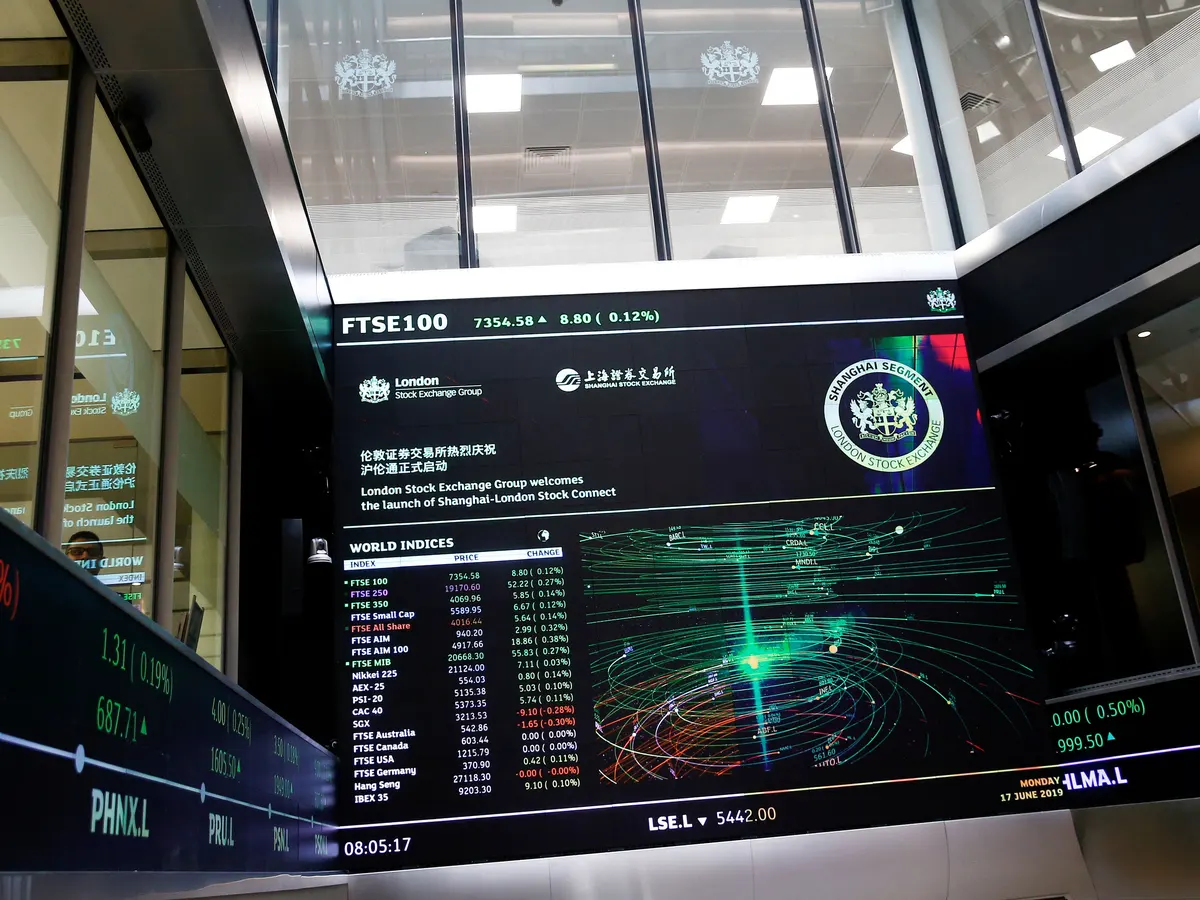European stock markets were poised to outperform Wall Street on Friday, buoyed by strong demand for exporter shares as major European currencies weakened against a robust dollar.
This shift was largely driven by expectations that the U.S. Federal Reserve would maintain high interest rates.
The Stoxx Europe share index (.STOXX) saw an increase of 1.1% on Friday morning, benefiting from a depreciating euro which enhanced the domestic value of exporters’ earnings in dollars.
In London, the FTSE 100 (.FTSE) climbed 1.3%, propelled by gains in global mining and oil stocks.
Meanwhile, future indicators suggested a less optimistic opening for Wall Street, with the S&P 500 expected to open 0.1% lower and Nasdaq 100 futures down by 0.3%.
This contrasted with the steady performance of MSCI’s all-country equity index, which was on track for its second consecutive weekly decline following unexpectedly high U.S. consumer price data that dampened hopes for imminent rate cuts.
Investors adjusted their expectations, now foreseeing a more modest reduction in the Fed’s main funds rate by about 45 basis points this year, down from earlier predictions of 150 basis points.
Current U.S. interest rates stand at a 23-year peak of 5.25%-5.5%.
Marcelo Carvalho of BNP Paribas highlighted the challenges facing the Fed, stating, “In the near term it is going to be harder for the Fed to cut than for the European Central Bank.”
This comes as the U.S. labor market shows signs of strength and the economy outperforms its global counterparts.
The dollar index rose 0.5% to 105.82 on Friday, marking a 1.5% weekly gain against a basket of major currencies.
The Japanese yen fell to a 34-year low against the dollar, igniting speculation about potential intervention by Tokyo to support the currency.
The ECB signaled a possible rate cut in June, which sent the euro to a five-month low of $1.0674. The pound also weakened, touching $1.2508.
These movements reflect anticipation that the ECB and the Bank of England may soon begin to reverse their aggressive monetary tightening, earlier than the Fed.
Susan Collins, President of the Boston Fed, expressed no immediate need to lower rates, citing the strong economy and uneven inflation retreat as reasons.
In the bond markets, long-term U.S. Treasury yields were up, trading at 4.54%, an increase from January’s figures, reflecting a decrease in bond prices.
The annualized ten-year return on U.S. Treasuries has now fallen to a 65-year low of just 0.6%.
Economists are cautious about the ECB’s potential actions after June, with Deutsche Bank noting that “The risk is skewed towards the ECB easing less quickly.”
Meanwhile, in the commodities market, gold prices soared to a record $2,397.1, and oil prices rose following geopolitical tensions in the Middle East.
Brent crude futures were up 1% to $90.60 a barrel, while U.S. West Texas Intermediate crude futures increased by 1.1% to $85.99.


